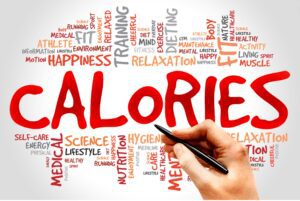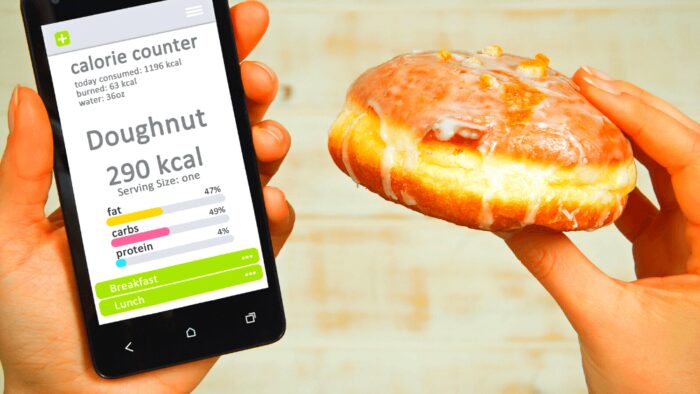The Importance Of A Calorie Deficit In Weight Loss
In this article, I’m going to discuss how a calorie deficit is necessary for weight loss to happen. I’ll go through the basics and cover some of the things you need to know if you want to lose weight and what can happen if you don’t follow a calorie deficit diet plan.
A Calorie Deficit- What It Is And How It Works?

A calorie deficit is where you are burning more calories than the number of calories that you take in. When your body doesn’t get enough to maintain weight or if it gets too little, it goes into survival mode and starts looking for other ways to create energy – one of them being the fat stored in your body.
When you’re in a calorie deficit, your body is burning fat to create energy and therefore losing weight. This means that if you’re working out as well, the more intense your workouts are the bigger the calorie deficit you’ll be able to put yourself through because of the extra amount of calories you’re burning.
Body Fat Percentage
The biggest mistake people make when trying to lose weight is focusing too much on the scale and not enough on their body fat percentage. The truth of the matter is that your body can gain and lose a lot more than just weight (fat).
Changing your weight does not necessarily change your appearance, but losing 5 lbs of fat and gaining 5 lbs of muscle will make a big difference.
Caloric Intake Vs Calorie Burn
The biggest mistake people make when trying to lose weight is over-estimating the number of calories they burn during the day, and therefore eating too much. As a rule of thumb, your body burns about 1800 calories per day (even when you’re sleeping).
So, if you eat less than 1800 calories per day your body will go into starvation mode, which means it starts storing fat. That’s why the very first thing I tell people to do is get an app on their phone that calculates how many calories they should intake per day based on their age, weight, height, gender, and activity level.
What is TDEE?
Your TDEE equals your total daily energy expenditure, which is the minimum number of calories your body consumes at rest. It includes the energy used for your body’s essential processes, such as breathing, circulating blood, and growing new cells.
This number varies based on the amount of lean muscle mass you have.
It also takes into consideration other factors that affect your metabolism. These include the rate at which you burn calories while exercising and your level of physical activity.
How A Calorie Deficit Leads To Weight Loss

When you create a calorie deficit by eating less and/or exercising more, your body’s stored fat becomes the primary source of fuel to make up for the missing calories.
Your body can also use protein from food or muscle for energy, but this is rare unless you are starving yourself.
As your calorie deficit continues, you’ll start to lose weight. The amount of weight lost will vary depending on your gender, how much fat you have to lose, and how quickly you’re trying to lose it.
For most healthy people who are moderately active during the day, a safe weight loss rate is about one or two pounds a week.
Your body uses energy to keep your heart beating, lungs breathing, kidneys functioning, and brain thinking.
As a general rule: The bigger the calorie deficit, the faster you lose weight. However, it’s not healthy to create too large of a calorie deficit.
The Negative Side Effects Of Creating An Unhealthy Calorie Deficit
Creating an unhealthy calorie deficit can lead to side effects like exhaustion, malnutrition, and muscle loss. This is because your body will prioritize where it gets energy first—from your muscles or from the food you eat.
Therefore, if you’re exercising a lot and eating very little, your body has no choice but to use up your muscle tissue for energy. This is why it’s important not to create too large of a calorie deficit.
A much better alternative is creating an aggressive (but healthy) calorie deficit of about 20% below your TDEE to lose about one to two pounds per week.
A calorie deficit of up to 25% may be necessary when you first start cutting calories. This is because when you reduce your calorie intake, your body down-regulates many of its metabolic functions in order to conserve energy. Once your body becomes used to its new weight, it will adjust its metabolic rate accordingly.
Calculating your calorie deficit might be difficult, but it’s often considered that eliminating 500 calories from your diet each day should result in one pound of weight loss per week. More on this in the article: How Can I Lose 15 Pounds In 3 Months?
10 Tips For Eating Fewer Calories

1. Eat Healthy Snacks
If you get hungry between meals, have something healthy to eat such as raw vegetables and Greek yogurt with fruit, so you don’t reach for the closest thing in your pantry. My favorite snacks are celery sticks with almond butter, cucumbers dipped in hummus, raw broccoli dipped in salsa, and popcorn with extra virgin olive oil.
2. Make Sure You’re Not Eating Too Many Calories At One Meal
If you are eating too much at one meal or have a habit of grazing throughout the day, try using smaller plates for portion control.
Studies show that people tend to eat until their plates are clean or until they feel satisfied. So, by reducing your portion sizes and using a smaller plate, you will automatically reduce the amount of food you consume during each meal.
3. Eat More Fiber At Every Meal
One of the best ways to reduce your calorie intake is to increase the fiber in your diet.
Fiber is found only in plant foods, so adding more fruits and fat burning vegetables to your diet is essential for reducing calories without feeling hungry or deprived.
The recommended daily intake of fiber for women over the age of fifty is 25 grams a day, while men need about 38 grams per day, but these numbers can vary depending on the individual.
4. Stop Drinking Your Calories
Drinking your calories adds hundreds of empty calories to your diet without filling you up or satisfying your hunger. This is one of the most detrimental changes I’ve made to my eating habits—it’s helped me lose fat while maintaining, and sometimes even gaining, lean muscle mass.
Drink water or unsweetened tea instead of sugary drinks that contain a ton of calories and very little nutrition. I’ve cut out all juice, soda, and other sugary beverages, and I drink my coffee black.
5. Eat More Vegetables And Fruits
Vegetables are low in calorie density—meaning you can eat a lot of them without consuming a ton of calories—and packed with nutrients. Many vegetables and fruits are high in fiber, which will help you stay full longer and keep blood sugar levels steady.
6. Use Healthy Fats For Cooking
Adding fat to your food not only increases the flavor but also helps to slow digestion so you stay full for longer. This is why it’s preferable to use healthy fats, such as coconut oil and olive oil, instead of butter or margarine when cooking your food.
So-called “healthy” vegetable oils are terrible for you, but monounsaturated and saturated fats—like those found in olive oil, avocados, coconut oil, grass-fed beef, nuts, seeds, and other healthy foods—are packed with nutrients and should be a part of your daily diet.
7. Make Sure You’re Eating Enough Protein
Protein helps to maintain and build lean muscle tissue and is more satiating than either carbohydrates or fats, so it’s an essential part of any weight loss diet.
Aim for at least 0.8 grams of protein per pound of body weight each day or about 120 grams for a 120-pound woman, but keep in mind that this is a minimum–you can always aim to eat more high protein foods if your goal is to build muscle.
8. Use Lower-Calorie Substitutes
If you love sweets and fried foods, try replacing half of the oil or butter with applesauce to cut back on calories.
Choose lower-calorie baking mixes and light salad dressings instead of the regular versions. Replace sour cream with plain Greek yogurt and use just a bit of cheese instead of the full amount.
The same could be said for condiments, especially if they’re high in sugar. Try using salsa, balsamic vinegar, lemon juice, or hot sauce instead of ketchup and mayonnaise.
9. Read Food Labels
You will be more likely to stick with your weight loss goals if you know exactly how many calories are in what you’re eating. That’s why it’s important to always read food labels and ingredient lists before buying something—you don’t want to eat too much of something that has very few calories by accident!
10. Stay Hydrated
Dehydration can sabotage your weight loss efforts. Make sure that you drink plenty of water every day—at least 64 ounces, or about 8 cups.
Don’t Give Up!
Diets can be hard to stick with, especially when you’re trying to give up foods that you love and replace them with healthier options—and it’s easy to fall back into old habits. This is why I recommend finding a diet and weight training plan that works for your lifestyle and will allow you to stick with it long-term.
Although some people prefer a more structured approach, where you have set rules on what to eat and when others may benefit from a looser plan that gives them greater flexibility. The important thing is to follow a diet that reduces calories without feeling too restrictive or challenging.
Make Exercise A Priority
Regular exercise is essential to maintaining healthy body weight and losing fat. It will also help to keep your appetite in check so you don’t feel like you need to eat more than you do.
While exercise isn’t a requirement for weight loss—calorie restriction alone can lead to weight loss, albeit very slowly—it does speed the process up and makes it easier to keep off any lost pounds. Aim for at least 150 minutes each week of moderate-intensity cardiovascular exercise or 75 minutes each week of high intensity cardio exercise.
If you’re not the type to enjoy exercising by yourself, find a friend or family member to walk with you during your lunch hour (if that’s possible) or join a group class like cycling or Zumba to make working out more fun and social.
If doing traditional cardio isn’t your thing, try a bodyweight workout or high-intensity interval training (HIIT).
Feel Better About Yourself
One of the best benefits of following these tips for losing weight is the improvement in your mood and self-esteem. When you reduce your calorie intake and increase your physical activity level, you will feel healthier and have more energy to do the things you enjoy.
When you feel better about yourself, you’ll be more likely to find the motivation and desire to stick with your weight loss goals—and that’s something we can all use a little help with from time to time!
